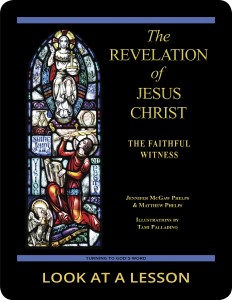disease
 The Gospel According to Matthew 9:35 (NABRE) records: “Jesus went around to all the towns and villages, teaching in their synagogues, proclaiming the gospel of the kingdom, and curing every disease and illness.” The ending words here translated as disease and illness have a range of meaning much broader than most translations suggest.
The Gospel According to Matthew 9:35 (NABRE) records: “Jesus went around to all the towns and villages, teaching in their synagogues, proclaiming the gospel of the kingdom, and curing every disease and illness.” The ending words here translated as disease and illness have a range of meaning much broader than most translations suggest.
The Greek word νόσος (nosos) is the word translated as disease. It largely refers to physical maladies including illness or plague, and it also can be used to refer to disease of the mind such as madness.
By contrast, the second word, μαλακία (malakia), at its root means something like softness. As a result, it can refer to physical weakness or sickness, but it as frequently also can refer to moral weakness or softness. Such a moral deficiency would be much more difficult to tend or to heal.
In the original Greek, this passage strongly suggests that Jesus is using his ministry to address both physical and moral problems. Why do you think it is that this is an important point of emphasis? What perspective does it add to your understanding of Jesus’ ministry?
related topics: healing; illness; miracles & signs; sin
you also may like our study of the book of Revelation
 The Revelation of Jesus Christ: The Faithful Witness, a 23-lesson Catholic Bible study with an imprimatur, examines ways in which our traditional Christian view of heaven is built on Hebrew apocalyptic visions recorded in the Old Testament. This recently revised study includes maps and additional commentary and takes a close look at the role of the prophets in present-day Christianity. Illustrations by Tami Palladino depict the often-misunderstood images in the book of Revelation. Click on the book’s cover to view a sample lesson.
The Revelation of Jesus Christ: The Faithful Witness, a 23-lesson Catholic Bible study with an imprimatur, examines ways in which our traditional Christian view of heaven is built on Hebrew apocalyptic visions recorded in the Old Testament. This recently revised study includes maps and additional commentary and takes a close look at the role of the prophets in present-day Christianity. Illustrations by Tami Palladino depict the often-misunderstood images in the book of Revelation. Click on the book’s cover to view a sample lesson.
 Click on the picture of the statue of Moses with horns (above) to learn more about Lost in Translation. A new entry is archived each Monday. Contact us to receive Lost in Translation by email every week. You may use any of the contact links on our website to ask Matthew a question.
Click on the picture of the statue of Moses with horns (above) to learn more about Lost in Translation. A new entry is archived each Monday. Contact us to receive Lost in Translation by email every week. You may use any of the contact links on our website to ask Matthew a question.
